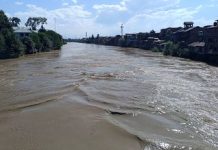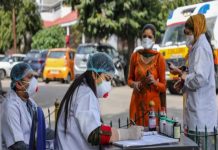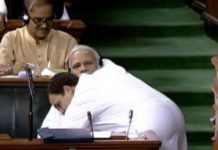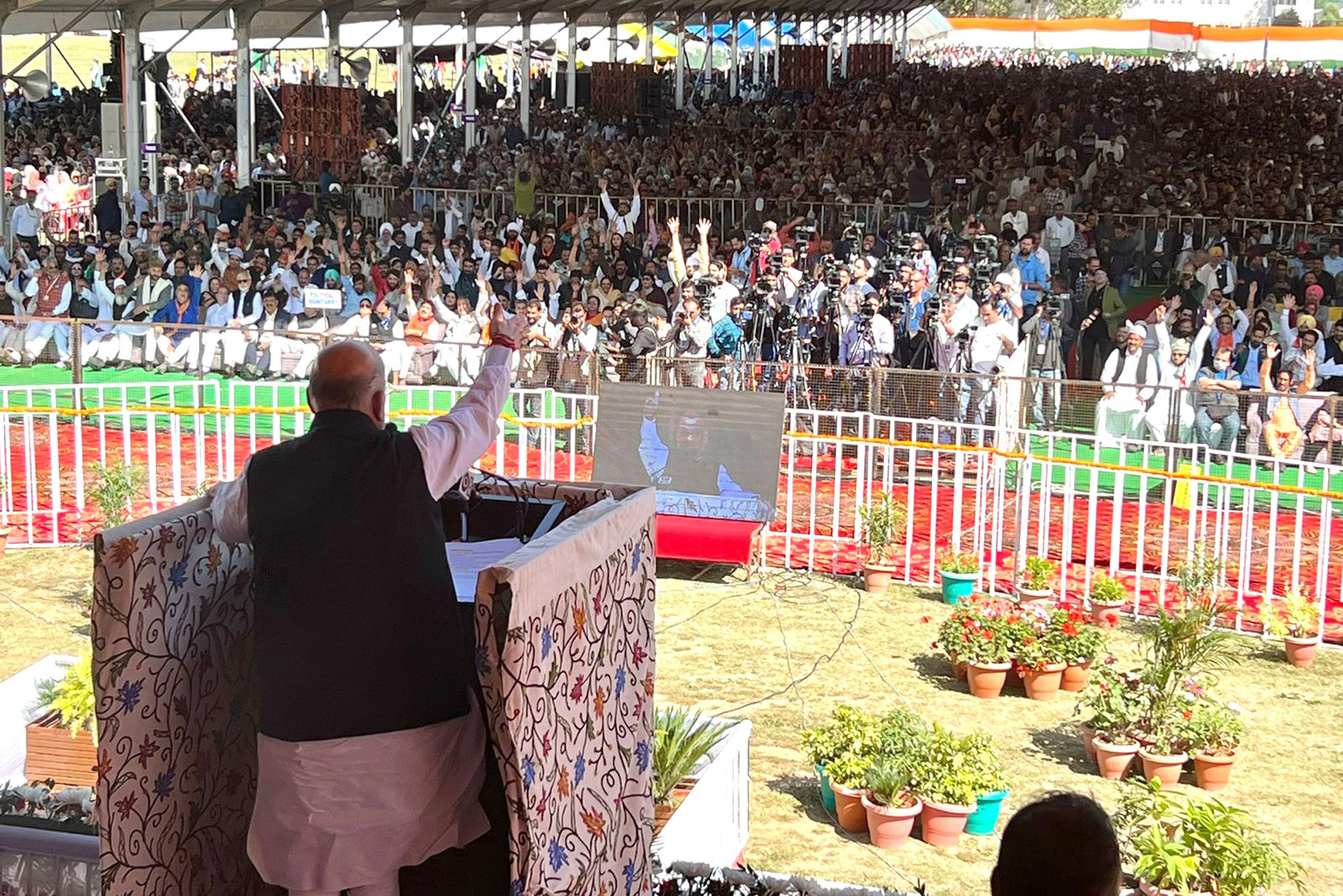
The big take-away from Home Minister Amit Shah’s J-K visit was his public mobilization around the idea that Kashmir after the withdrawal of its special constitutional status was better than before. To this end, his two rallies in the UT were a roaring success. A report by Riyaz Wani
As the high-profile ministerial visits from New Delhi to Srinagar go, the Union home minister Amit Shah’s October 4-5 visit to Jammu and Kashmir can be considered very successful. During his stay, the union minister reviewed the security situation and addressed two rallies, one at Rajouri in Jammu and another at Baramulla in Kashmir Valley. He also launched development projects in both regions. The security meeting on October 5 was attended by Lieutenant Governor Manoj Sinha, the National Security Advisor, Ajit Doval, top officials of the army, paramilitary forces, state police, and civil administration. The meeting took stock of the working of the security grid and the various actions being taken to reduce the incidents of terrorism over the last few years.
During the meeting, Shah directed the security forces to strive to make the border and the Line of Control impregnable to achieve peace in Kashmir. He also asked the Army and the police to make “coordinated efforts through meticulous and well-planned counter-terrorism operations to wipe out terrorism.”
The cases registered under the UAPA were also reviewed and it was stressed that the investigation should be timely and effective.
“Terror eco-system comprising elements that aid, abet and sustain the terrorist-separatist campaign to the detriment of the well-being of common man requires to be dismantled,” said the union home minister.
Two rallies
The big take-away from the Shah’s visit was his public mobilization around the idea that Kashmir after the withdrawal of its special constitutional status was better than before. To this end, his two rallies in the union territory were a roaring success, and not necessarily because they were well-attended. Over ten thousand people attended the Baramulla rally, which was unusual and unexpected for a BJP leader, otherwise perceived to be working against Muslim interests – more so in Kashmir. This, despite the fact that Baramulla town where the rally was held was under siege for the entire day. The shops weren’t allowed to open, and the traffic couldn’t pass. No traffic was also allowed on the Srinagar-Baramulla highway.
This, however, didn’t detract from the significance of the Baramulla rally. It was once unthinkable that a rally of this size could be held by a top BJP leader in a north Kashmir town, once roiled by militancy and conflict. Shah made most of it by training guns at the three families – Abdullahs, Muftis and Gandhis – who, according to him, have ruled and ruined Jammu and Kashmir over the past seven decades. He asserted that Naya Kashmir, forged after the erasure of the special status, was a far better place than the earlier, counting the reduction of violence, investments in development projects, and the resurrection of tourism among the BJP government’s achievements.
Shah’s claims were reinforced as the two-day visit went incident-free. In the run-up to the visit, however, there were a few incidents of violence in Jammu, including the blast on passenger buses and the killing of the DGP Prisons H K Lohia, the latter termed by the police as a crime not related to terrorism.
Outreach to Gujjars, Bakerwals, and Paharis
The home minister’s visit was marked by outreach to the Gujjar, the Bakerwal and the Pahari communities. Shah announced the implementation of the Scheduled Tribe (ST) status for economically disadvantaged communities. Addressing the rally at Rajouri, the home minister said that minorities and Dalits living in the Union Territory would not have gotten reservation rights if there was no abrogation of Articles 370 and 35A in 2019. And in Baramulla, he reiterated the reservation promise to the three communities. The ST quota in J&K carries 7 percent reservations in government jobs and educational institutions.
The decision to give reservations to the communities is seen as a clever pre-poll gambit by the BJP. Gujjars, Bakerwals, and Paharis comprise 40 percent of the population in border districts. And if the gambit succeeds as looks likely, it could persuade a large section of these tribal communities to vote for the BJP, further ensuring its victory in the Jammu division and also enabling the party to make some inroads in Kashmir Valley.
Eight assembly seats in the Rajouri and Poonch districts of the Jammu division are decidedly influenced by the Paharis, the Gujjars, and the Bakerwals. For any political party hoping to form the government in J&K, where elections are likely to take place toward the end of the year or early the following year, these seats are crucial. If the BJP wins these seats, it can hope to sweep the Jammu division with 43 seats, fortifying its chances to form a government with support from a Kashmir-based party.
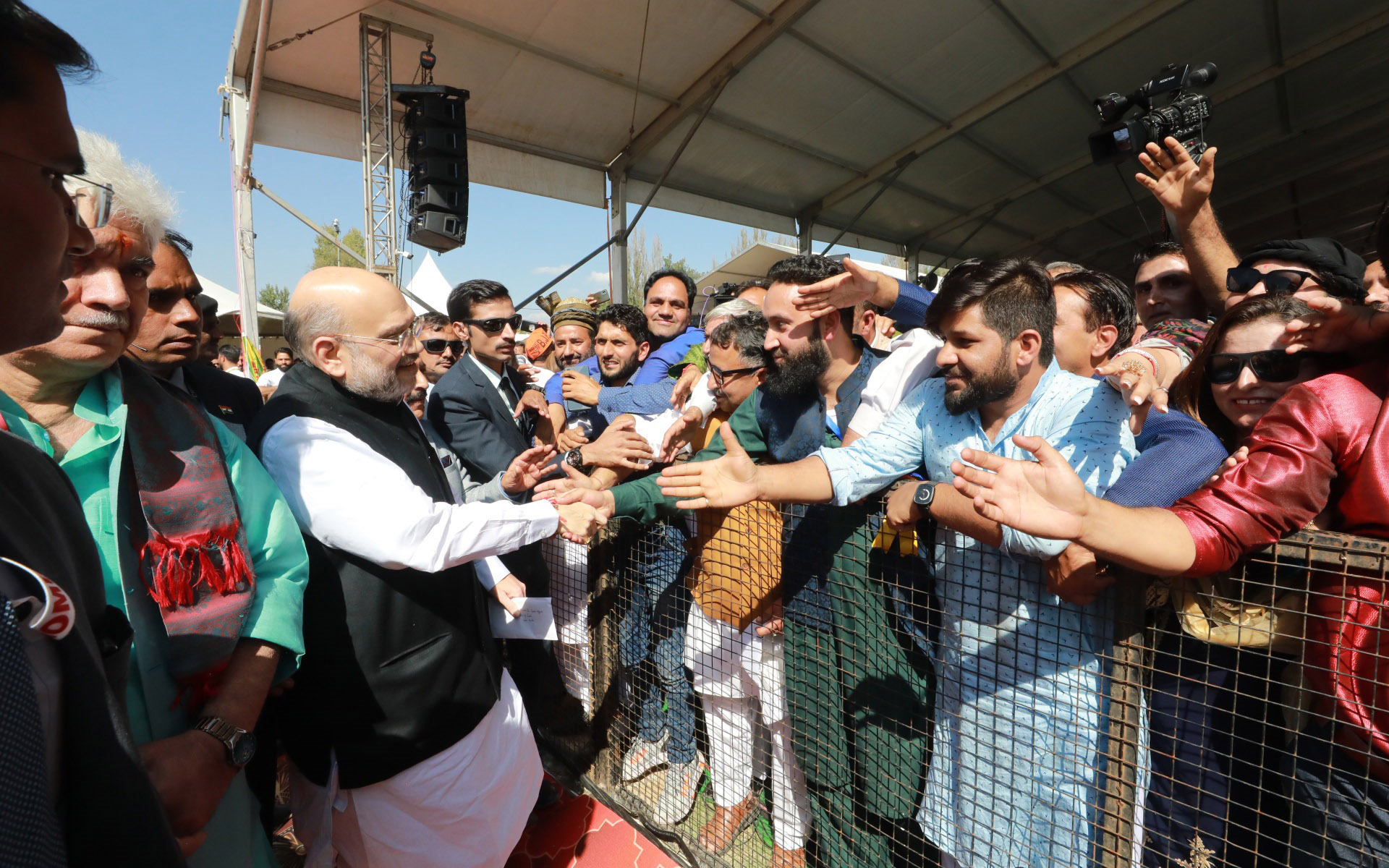
There is a catch here though: Gujjars and the Bakerwals already have ST status, enjoying it since 1991, so they are worried about the dilution of their Scheduled Tribe (ST) quota, with Paharis also partaking in the pie. And as a result, the BJP may not end up benefiting to the extent it expected.
No dialogue with Pakistan
The home minister once again refused to start a dialogue with Pakistan, saying instead he would prefer to hold talks with Gujjars and Paharis and also with the youth of Kashmir. This has made the chances of any re-engagement between the two neighbours in the near future look very bleak.
This is the second time that the home minister has rejected the possibility of a dialogue with Pakistan over the last year – earlier he had ruled out any such possibility during his visit to the union territory in October 2021. The statement once again confirmed that India has taken Kashmir off the table in any future engagement with Pakistan.
The removal of Article 370 in August 2019 and the subsequent measures have fundamentally altered the ground situation in Jammu and Kashmir in most of its aspects, changing the complexion of the Kashmir issue as it existed before. The home minister’s well-attended rally in Baramulla was a testament to this reality.
Still, the statement appeared strange considering the two countries had engaged informally for months after the revocation of Article 370. The back-channel talks were reported to have begun in November 2020 and by February 2021, the two countries had reinstated the otherwise defunct 2003 ceasefire along the Line of Control. The truce was marked by a brief spell of bonhomie. Both the then Pakistan prime minister Imran Khan and the Army chief General Qamar Javed Bajwa called for dialogue and resolving Kashmir in a peaceful manner.
But as the home minister’s statement makes it clear, there has been no progress on the back-channel making it difficult for the two neighbours to move to the front-channel.
Meanwhile, the home minister’s visit has almost sounded the election bugle in Kashmir. His outreach to the tribal communities has signalled that elections could likely be held after the revision of electoral rolls is complete. So, the elections can be held anytime towards the end of this year or early next year.








